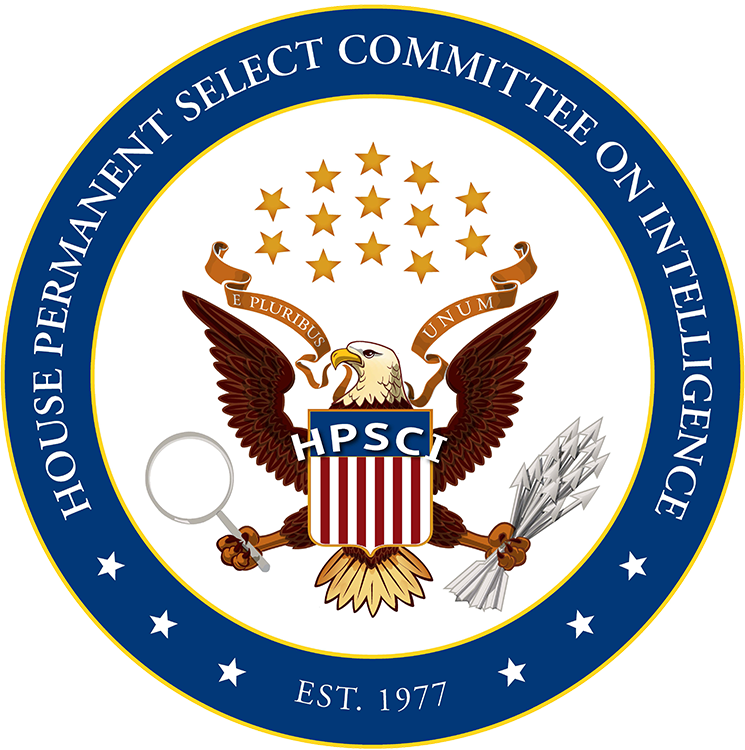Press Releases
Chairman Crawford Joins the International Spy Museum’s “SpyCast” Podcast
Washington,
June 17, 2025
WASHINGTON, D.C.— House Permanent Select Committee on Intelligence Chairman Rick Crawford (AR-01) joined the International Spy Museum’s podcast “SpyCast” to discuss the growing threat of China’s influence in the Western Hemisphere, the work of the Committee’s new Open-Source Intelligence Subcommittee, and the importance of analytic integrity in intelligence. Listen to the full podcast here.
CCP IN THE WESTERN HEMISPHERE: “You've got China that's driving strong…to really capitalize on what could be an economic juggernaut in the Northeastern South American continent in Guyana and Surinam. And what they would really like to do is create a Caribbean lake using those Caribbean islands. We're down to just a very few [countries] who have not expelled their Taiwanese diplomats…but that's the first foray into the relationship with China…if you'll expel your Taiwanese diplomats, then we can play in your sandbox and we'll do all these economic investments…and that's enticing to small countries that need a little bit of economic help.” VALUE OF OSINT: “I think that it has come into its own as a discipline, even though there was not necessarily specific doctrine or trade craft governing the collection of OSINT. It's been around since time began, and it's been relied on heavily, although it's not the sexy collect that we hear about the HUMINT, the SIGINT, those kinds of things… And by the way, 25% of the President's Daily Brief is OSINT derived. That's a significant amount of information that is OSINT collected, and it's what you do with it and how you synthesize that information and weave that into the total intelligence picture that I think is so important.” USE OF OSINT ON THE BATTLEFIELD: “The intelligence services in both [Russia and Ukraine] are using open-source intelligence to help inform better decision making as it applies to real-time collection. Yes, they're using other collection means as well. That's never going away. But our goal was to elevate OSINT to an organized, recognized collection discipline and how we structure it and manage it in a way that we can get the most and best out of it so that it better serves the intelligence community and leads to better outcomes and better decision making.” DECISION-MAKING RELIES ON GROUND TRUTH: “What the NIC did was essentially define a predetermined narrative and then try to use analysis to support that. Well, that's problematic and here's why it's problematic, because the decision makers are relying on ground truth. What we don't need is a political bias or an agenda directed into the analysis, because then we're going to make poor decisions. And when we make poor decisions, things happen that could have been avoided or should have been avoided.” FISA 702 REAUTHORIZATION: “I believe we need to reauthorize 702, but that it definitely needs to be reformed. And there's a variety of ways we can go about doing that. And what we're going to have to do is partner with our colleagues on [the] Judiciary [Committee] who can look at this from the legal perspective, that's their job. And we come to the table with the intelligence perspective and arrive at a solution that not only addresses the threats that exist and that 702 is designed to address but also takes into consideration the Constitutional protections that we count on in this country. Those two things can and should coincide. We can do both and we’re going to.” TRANSPARENCY: “It almost sounds counterintuitive to say we need to be more transparent in the IC, but it's not necessarily about sources and methods and the things that they do to protect us and keep us safe. It's about operating in a way that is respectful of our Constitutional protections. It's about making sure that there's accountability within the IC elements…We want [Americans] to feel like our intelligence community is not working against them but working against our adversaries in an effort to keep us safe.” BIPARTISANSHIP: “Let me start by saying good policy is most important, and if we can engage in good, solid policy and achieve bipartisanship in doing that, that is a great win. But we can't sacrifice good policy simply for the sake of bipartisanship. This committee is functioning very, very well on a bipartisan basis because we're in a space that recognizes that we are equally yoked with regard to protecting the American people.” ### |

